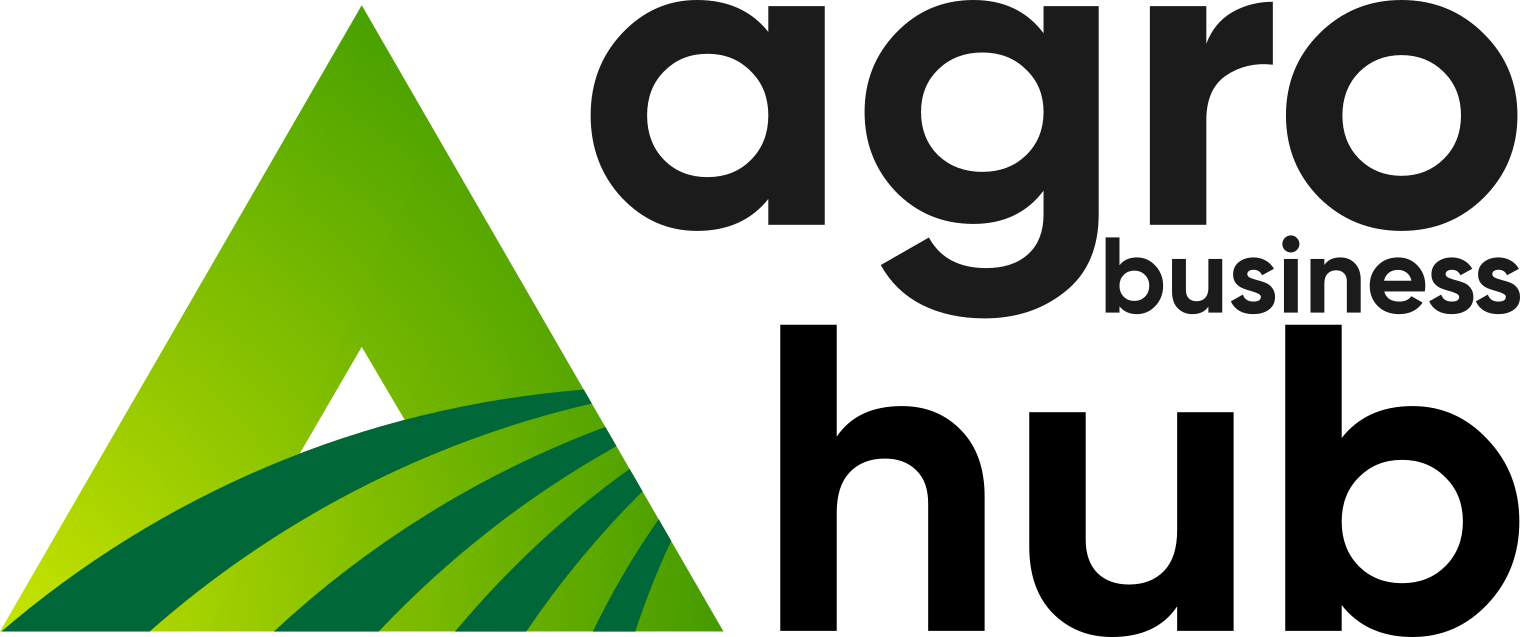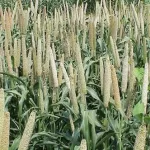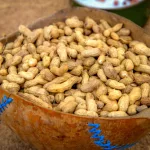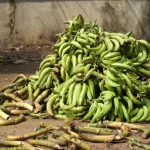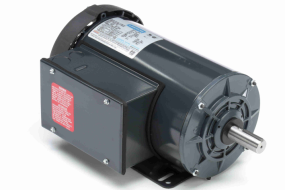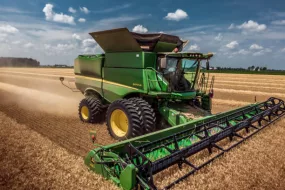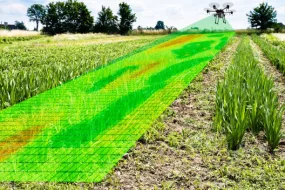In the heart of our rapidly evolving digital age, where technology continues to reshape various industries, agriculture stands as no exception. The adoption of blockchain technology has been a game-changer, revolutionizing farming practices and redefining the way we produce, distribute, and consume agricultural products. In this article, we will delve into how blockchain is transforming agriculture, creating a more transparent, efficient, and sustainable future for the industry.
Read, Also >>>>>> A Comprehensive Guide For Cloud Computing Solutions for sustainability in Modern Agriculture
Understanding Blockchain in Agriculture
Blockchain in Agriculture: A Revolution in Transparency
The agriculture industry has long been associated with tradition and manual record-keeping. Farmers, distributors, and consumers have often been in the dark regarding the journey of food from the farm to the table. This lack of transparency has led to numerous challenges, including food safety concerns, inefficient supply chains, and a general disconnect between producers and consumers.
Decentralized and tamper-proof digital ledger known as blockchain technology has gained recognition as a transparent and traceable solution to issues in agriculture.
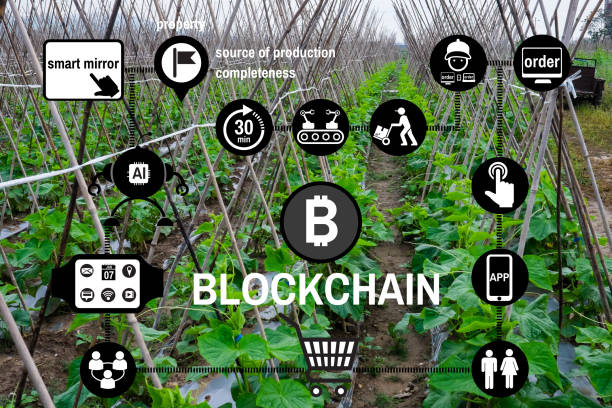
The Core Principles of Blockchain
Before we explore its applications in agriculture, let’s grasp the core principles of blockchain:
- Decentralization: Traditional systems rely on a central authority (like banks or governments) to validate and record transactions. Blockchain operates on a decentralized network of computers, ensuring no single entity has complete control.
- Immutability: Once data is recorded on the blockchain, it cannot be altered or deleted. Each block in the chain contains a cryptographic reference to the previous one, creating a secure and unchangeable history.
- Transparency: Blockchain transactions are visible to all participants in the network. This transparency builds trust and allows for the verification of data.
- Security: The cryptographic nature of blockchain ensures that data is secure and tamper-resistant. Hacking a blockchain would require an unrealistic amount of computational power.
Transforming Agriculture with Blockchain
Now, let’s explore how blockchain is transforming the agriculture sector:
- Supply Chain Transparency: Blockchain records every step of the supply chain, from planting seeds to delivering products to consumers. This transparency enables consumers to trace the origin of their food, fostering trust in the system.
- Food Safety: In cases of foodborne illnesses or contamination outbreaks, blockchain allows for swift and precise tracking of affected products. This speeds up recalls, reduces health risks and minimizes financial losses.
- Efficient Record-Keeping: Traditional paper-based record-keeping is prone to errors and inefficiencies. Blockchain replaces this with digital records that are secure, easily accessible, and minimize the risk of human error.
- Fair Trade and Sustainability: Smart contracts, a feature of blockchain, automate transactions and payments when specific conditions are met. This ensures fair compensation for farmers and promotes ethical practices. Consumers can also make informed choices to support sustainability.
- Reduced Food Waste: Real-time data on inventory levels and demand provided by blockchain helps farmers and distributors make informed decisions. This, in turn, reduces food waste by preventing overproduction and spoilage.
- Access to Funding and Markets: Blockchain’s tokenization of assets allows farmers to access financial services and global markets that were previously out of reach. This promotes economic growth in agriculture, especially for small-scale farmers.
The Road Ahead
As blockchain technology continues to evolve, its applications in agriculture will expand. We can anticipate increased integration with Internet of Things (IoT) devices for real-time monitoring and data collection on farms. Moreover, blockchain consortiums and partnerships among industry stakeholders will become more common to ensure standardization and interoperability.
In conclusion, blockchain is more than just a buzzword in agriculture; it represents a fundamental shift toward transparency, efficiency, and sustainability. Embracing blockchain technology is not just an option; it’s a necessity for an industry that plays a vital role in feeding the world’s growing population. As blockchain’s potential unfolds, it holds the promise of making agriculture safer, more accountable, and environmentally responsible, benefitting everyone from the farmer to the consumer.
1. Supply Chain Transparency
Supply chain transparency has emerged as a pivotal benefit of blockchain technology in agriculture, bringing about a revolution in the way we track and monitor the journey of agricultural products from farm to fork.
The Challenge of Transparency in Traditional Agriculture
In traditional agricultural supply chains, transparency was often lacking. Consumers had limited insight into where their food came from, how it was grown, and the conditions it endured during transportation and storage. This lack of transparency created a disconnect between consumers and the sources of their food, eroding trust in the system.
Moreover, when issues like food contamination or quality concerns arose, it was often a time-consuming and labor-intensive process to identify the source of the problem. The complexity of global supply chains only exacerbated these challenges.
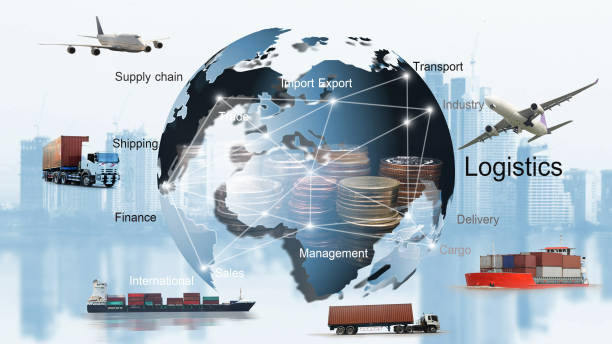
Blockchain’s Role in Supply Chain Transparency
Blockchain technology addresses these issues head-on by providing a secure, decentralized, and immutable ledger that records every step of a product’s journey through the supply chain. Here’s how it works:
- Data Immortality: Once information is recorded on the blockchain, it becomes permanent and cannot be altered or deleted. Each transaction is linked to the previous one in a chain of blocks, creating an unchangeable history. This means that every event in the supply chain, from planting a crop to its final destination, is permanently documented.
- Decentralization: Unlike traditional supply chain systems, which may rely on a central authority or database, blockchain operates on a network of computers, each maintaining a copy of the ledger. This decentralization ensures that no single entity can manipulate the data, enhancing trust.
- Transparency: Blockchain transactions are visible to all participants in the network. This transparency allows consumers, regulators, and stakeholders to access real-time information about a product’s journey. QR codes or NFC tags on product packaging can be scanned to retrieve this data, offering consumers an unprecedented level of transparency.
Benefits of Supply Chain Transparency in Agriculture
- Consumer Trust: Blockchain gives consumers the ability to trace the origin of their food and understand its entire journey. This transparency builds trust, especially in an era where consumers are increasingly concerned about the source and safety of their food.
- Swift Issue Resolution: In the event of a food safety issue or contamination outbreak, blockchain enables rapid identification of the source of the problem. This quick response can save lives, reduce economic losses, and prevent further distribution of tainted products.
- Quality Assurance: Farmers and producers can use blockchain to record essential details about their products, such as cultivation methods, storage conditions, and certifications. This information can be easily accessed and verified by consumers, ensuring quality and authenticity.
- Efficiency: Traditional paper-based record-keeping in agriculture is time-consuming and prone to errors. Blockchain’s digitized and automated approach streamlines record-keeping, reducing administrative burdens and increasing overall efficiency.
- Sustainability: By providing insight into a product’s journey, blockchain empowers consumers to make informed choices that align with their values. This encourages the adoption of sustainable and ethical farming practices as consumers increasingly support environmentally conscious products.
Supply chain transparency through blockchain technology is not just a buzzword; it’s a transformative force in agriculture. It bridges the gap between producers and consumers, ensures the safety and quality of food products, and promotes ethical and sustainable practices. As blockchain continues to evolve and gain wider adoption, the agricultural industry is poised for a future of increased accountability and trust, benefiting all stakeholders along the supply chain.
2. Enhanced Food Safety
Enhancing food safety is a critical aspect of blockchain technology’s impact on the agricultural industry. Let’s explore how blockchain is revolutionizing food safety practices and ensuring the well-being of consumers.
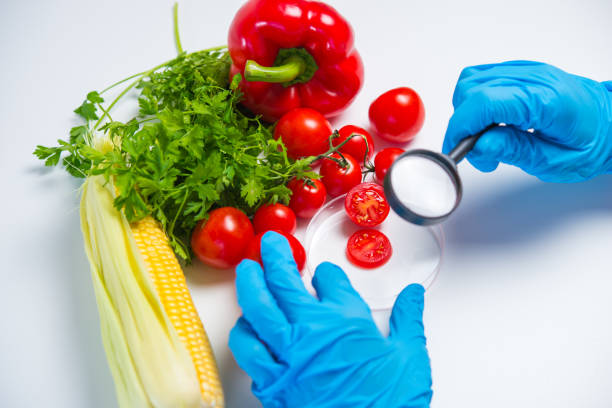
The Imperative of Food Safety
Food safety has always been a top priority in agriculture. Contaminated or unsafe food can lead to severe health risks, outbreaks of foodborne illnesses, and substantial economic losses. Traditional methods of tracking and responding to food safety issues have often been slow and inefficient, putting public health at risk.
Blockchain’s Role in Enhancing Food Safety
Blockchain technology offers a robust solution to address food safety concerns. Here’s how it accomplishes this:
- Rapid Traceability: Every step of the food supply chain, from planting and harvesting to processing and distribution, is recorded on the blockchain in real time. This means that the journey of a food product can be traced back to its source within minutes, not days, in the event of a safety concern.
- Immutable Records: Once data is recorded on the blockchain, it becomes unalterable. This immutability ensures that the recorded information, including details of the product’s origin, handling, and transportation, cannot be tampered with.
- Transparency: Blockchain’s transparency allows all participants in the supply chain, including regulators and consumers, to access the same, up-to-date information. This shared view fosters trust and accountability.
- Smart Contracts: Smart contracts are self-executing agreements with predefined rules. They can be integrated into blockchain systems to trigger actions automatically when certain conditions are met. In the context of food safety, smart contracts can facilitate rapid recalls or actions in response to contamination concerns.
Read, Also >>>>>> A Comprehensive Guide For Cloud Computing Solutions for sustainability in Modern Agriculture
Benefits of Enhanced Food Safety Through Blockchain
- Rapid Response to Contamination: In cases of foodborne illnesses or contamination outbreaks, blockchain enables swift and precise tracking of affected products. This speed is crucial in preventing further distribution and consumption of tainted items, saving lives, and reducing economic losses.
- Preventive Measures: By providing real-time data on the conditions of food products throughout the supply chain, blockchain allows for proactive measures to be taken to ensure food safety. For example, if temperature thresholds for perishable goods are breached, alerts can be triggered, and corrective actions can be initiated.
- Trust and Confidence: As consumers gain access to transparent and trustworthy information about the safety of the food they consume, their confidence in the food supply chain increases. This trust is essential in maintaining a positive reputation for food producers and distributors.
- Efficient Recalls: Traditional recalls often involve time-consuming efforts to locate and remove contaminated products from store shelves. With blockchain, recalls can be executed with precision, targeting only affected batches and minimizing disruptions to the supply chain.
- Data-Driven Decision-Making: By analyzing the vast amount of data collected through blockchain, stakeholders can identify trends and potential areas of improvement in food safety practices. This data-driven approach leads to more effective risk management.
- Global Collaboration: Blockchain’s decentralized nature facilitates global collaboration on food safety standards and best practices. It allows different entities across borders to work together seamlessly to ensure the safety of food products on a global scale.
Enhanced food safety through blockchain technology is a game-changer for the agricultural industry. It provides a comprehensive and efficient way to address food safety concerns, protects public health, and maintains the integrity of the food supply chain. As blockchain adoption continues to grow, we can expect to see safer, more reliable, and more transparent food systems benefitting both producers and consumers.
3. Efficient Record-Keeping
Efficient record-keeping is a fundamental aspect of modern agriculture, and blockchain technology is revolutionizing this critical function. In this article, we’ll explore how blockchain enhances record-keeping in agriculture and the myriad benefits it offers to farmers, producers, and the entire industry.
The Importance of Efficient Record-Keeping in Agriculture
Record-keeping has always played a crucial role in agriculture. Farmers and producers need accurate data to track planting and harvesting schedules, manage inventory, comply with regulations, and make informed decisions about their operations. In the past, this was often done through manual processes, which were time-consuming, error-prone, and lacked transparency.
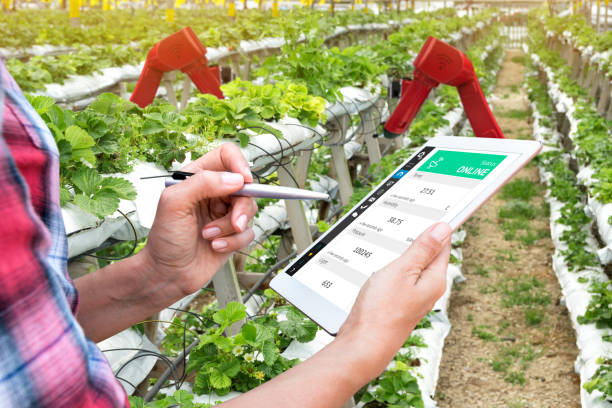
Blockchain’s Role in Efficient Record-Keeping
Blockchain technology addresses these challenges by introducing a secure, digital, and decentralized ledger for record-keeping. Here’s how it achieves efficient record-keeping:
- Immutability: Once data is entered into the blockchain, it becomes immutable, meaning it cannot be altered or deleted. This ensures the integrity and permanence of recorded information.
- Decentralization: Unlike traditional record-keeping systems that rely on a central authority or database, blockchain operates on a distributed network of computers. Each participant in the network maintains a copy of the ledger, reducing the risk of data loss or manipulation.
- Real-Time Updates: Transactions are recorded in real-time on the blockchain. This means that any changes or updates to records are instantly visible to all authorized parties, eliminating delays associated with manual data entry and updates.
- Data Security: Blockchain employs cryptographic techniques to secure data, making it highly resistant to hacking and unauthorized access. This enhances the confidentiality and security of sensitive agricultural records.
- Smart Contracts: Smart contracts, automated self-executing agreements, can be integrated into blockchain systems. These contracts facilitate automatic actions when predefined conditions are met, streamlining processes such as payments, compliance checks, and quality control.
Benefits of Efficient Record-Keeping through Blockchain in Agriculture
- Time and Cost Savings: The automation of record-keeping processes reduces the time and labor required for data entry, verification, and reconciliation. This leads to cost savings for farmers and producers.
- Error Reduction: Manual record-keeping is susceptible to errors, which can have significant consequences in agriculture. Blockchain’s accuracy minimizes errors and ensures data integrity.
- Compliance and Certification: Many agricultural operations need to comply with regulations and obtain certifications. Blockchain simplifies compliance by providing a transparent and auditable record of activities and processes.
- Inventory Management: Efficient record-keeping on the blockchain enables farmers and distributors to manage inventory levels more effectively, reducing waste and optimizing supply chains.
- Data Accessibility: Authorized parties, including farmers, suppliers, and regulators, can access relevant data in real time, promoting transparency and collaboration.
- Streamlined Audits: Auditing processes become more straightforward and less resource-intensive when all records are readily available on the blockchain. This can lead to quicker audits and fewer disruptions to farming operations.
- Better Decision-Making: Data-driven decision-making becomes more accessible with the wealth of accurate, real-time information stored on the blockchain. Farmers can optimize planting schedules, resource allocation, and marketing strategies.
Efficient record-keeping in agriculture is essential for productivity, compliance, and informed decision-making. Blockchain technology is a transformative force in achieving these goals, offering secure, transparent, and automated record-keeping processes that benefit farmers, producers, and the entire agricultural ecosystem. As blockchain adoption continues to grow, we can expect to see even more streamlined and efficient agricultural operations, contributing to the sustainability and success of the industry.
4. Fair Trade and Sustainability
Fairtrade and sustainability are becoming increasingly important in the agricultural sector, and blockchain technology is playing a pivotal role in promoting ethical practices, transparency, and equitable compensation. In this article, we’ll explore how blockchain is revolutionizing fair trade and sustainability in agriculture.

The Imperative of Fair Trade and Sustainability
Fairtrade and sustainability have gained significant traction in recent years as consumers become more conscious of the social and environmental impacts of their choices. In agriculture, these concepts encompass ethical treatment of farmers, responsible land use, and environmentally friendly practices. However, verifying these claims and ensuring fair compensation for farmers has historically been a challenge.
Blockchain’s Role in Promoting Fair Trade and Sustainability
Blockchain technology addresses these challenges by providing a transparent, immutable, and decentralized platform for tracking and verifying fair trade and sustainability practices. Here’s how it achieves this:
- Traceability: Every step of a product’s journey, from the farm to the consumer, is recorded on the blockchain. This includes information about cultivation methods, labor practices, environmental impact, and certifications.
- Immutable Records: Data entered into the blockchain is permanent and tamper-proof. This ensures that once information is recorded, it cannot be altered or deleted, maintaining the integrity of records.
- Transparency: Blockchain transactions are visible to all participants in the network. This transparency enables consumers to access real-time information about the products they purchase, including their ethical and environmental attributes.
- Smart Contracts: Smart contracts can be used to automate payments and ensure that farmers receive fair compensation when specific conditions are met, such as the delivery of a certain quantity of produce or adherence to sustainability standards.
Benefits of Blockchain in Promoting Fair Trade and Sustainability
- Fair Compensation: Blockchain ensures that farmers receive fair compensation for their products through transparent and automated payment systems. This reduces the impact of middlemen and ensures a more equitable distribution of profits.
- Consumer Empowerment: Consumers can make informed choices by accessing blockchain data. They can choose products that align with their values, such as supporting sustainable farming practices or fair trade initiatives.
- Ethical Practices: Blockchain verifies and records ethical practices, such as fair labor conditions and responsible land use, helping consumers trust that their purchases support ethical farming.
- Environmental Responsibility: Sustainability data recorded on the blockchain, including water and energy usage, pesticide and fertilizer application, and land management practices, promotes environmentally responsible agriculture.
- Market Access: Small-scale farmers in remote areas often struggle to access global markets due to a lack of documentation and trust. Blockchain’s digital records and transparent transactions make it easier for these farmers to participate in fair trade.
- Certification and Compliance: Blockchain simplifies the certification process by providing a tamper-proof record of compliance with standards and regulations. This reduces paperwork and audit-related costs.
- Encouraging Innovation: Knowing that sustainable practices are rewarded, farmers are incentivized to adopt innovative, eco-friendly farming methods and technologies.
Blockchain technology is a powerful enabler of fair trade and sustainability in agriculture. It promotes ethical practices, equitable compensation, and transparent supply chains. As consumers increasingly demand products that align with their values, blockchain’s role in ensuring fair trade and sustainability will continue to grow, reshaping the agricultural industry into a more ethical, responsible, and environmentally conscious sector.
5. Reduced Food Waste
Reducing food waste is a critical concern in agriculture, with enormous environmental, economic, and ethical implications. Blockchain technology has emerged as a powerful tool to combat this issue by providing real-time data, transparency, and improved supply chain management. In this article, we’ll delve into how blockchain is contributing to the reduction of food waste in the agricultural industry.
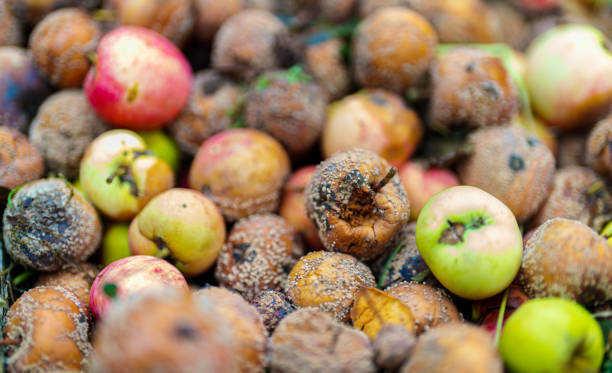
The Global Food Waste Challenge
Food waste is a significant global problem. According to the Food and Agriculture Organization (FAO) of the United Nations, approximately one-third of all food produced for human consumption is wasted each year. This wastage occurs at various stages of the food supply chain, from production and distribution to retail and consumption.
Blockchain’s Role in Reducing Food Waste
Blockchain technology offers innovative solutions to tackle food waste by enhancing visibility, traceability, and efficiency in the agricultural supply chain:
- Real-Time Data: Blockchain provides real-time data on the status and location of food products as they move through the supply chain. This data includes information on temperature, humidity, and expiration dates, helping to ensure the freshness of products.
- Traceability: Every step of a food product’s journey is recorded on the blockchain, from farm to table. This allows for precise tracking and tracing, making it easier to pinpoint the source of problems if contamination or spoilage occurs.
- Smart Contracts: Smart contracts can be integrated into the blockchain to automate actions based on predefined conditions. For example, if temperature thresholds for perishable goods are breached during transport, smart contracts can trigger alerts and immediate corrective measures.
- Inventory Management: Blockchain improves inventory management by providing accurate and up-to-date information on stock levels. This helps reduce overproduction, manage stock more efficiently, and prevent food from going to waste.
- Consumer Engagement: Consumers can access blockchain data through QR codes or apps, allowing them to make informed purchasing decisions based on the freshness and quality of products. This empowers consumers to reduce food waste at the household level.
Benefits of Reducing Food Waste Through Blockchain
- Economic Savings: By preventing overproduction and optimizing supply chain logistics, blockchain helps reduce financial losses for farmers, distributors, and retailers.
- Environmental Impact: Food waste is a significant contributor to greenhouse gas emissions. Minimizing waste through blockchain can have a positive impact on the environment by reducing emissions associated with food disposal.
- Improved Efficiency: The real-time data and automation provided by blockchain streamline supply chain operations, reducing inefficiencies and saving time and resources.
- Enhanced Food Safety: A reduction in food waste can lead to improved food safety, as there are fewer opportunities for contaminated or spoiled products to enter the market.
- Consumer Empowerment: Consumers can make more informed choices about the products they purchase, selecting items with longer shelf lives and better freshness indicators.
- Sustainable Practices: By reducing waste, blockchain encourages sustainable agricultural practices, as farmers are incentivized to produce only what is needed and minimize unnecessary resource usage.
Blockchain technology has the potential to make a substantial impact on reducing food waste in the agricultural industry. Its ability to provide real-time data, traceability, and automation enhances supply chain efficiency and transparency, resulting in less food waste at all stages of the journey from farm to table. As the adoption of blockchain in agriculture continues to grow, we can anticipate a significant reduction in food waste, leading to economic, environmental, and social benefits.
Read, Also >>>>>> A Comprehensive Guide For Cloud Computing Solutions for sustainability in Modern Agriculture
6. Access to Funding and Markets
Access to funding and markets has historically been a challenge for many farmers, especially small-scale and marginalized agricultural communities. Blockchain technology is changing this landscape by providing a secure, transparent, and inclusive platform for financial transactions and market access. In this article, we’ll explore how blockchain is empowering farmers with improved access to funding and markets.

The Financial Barrier in Agriculture
Small-scale farmers often face difficulties in obtaining loans or accessing financial services due to limited collateral, lack of credit history, and geographical isolation. Additionally, entering global markets can be daunting due to bureaucratic hurdles, middlemen, and a lack of transparency.
Blockchain’s Role in Access to Funding and Markets
Blockchain technology offers innovative solutions to address these challenges and level the playing field for farmers:
- Tokenization of Assets: Blockchain enables the creation of digital tokens representing real-world assets, such as crops, livestock, or land. These tokens can be used as collateral for loans or traded on digital marketplaces.
- Smart Contracts: Smart contracts automate the execution of agreements based on predefined conditions. In the context of agriculture, smart contracts can facilitate automatic payments to farmers when specific conditions (e.g., successful harvest, delivery confirmation) are met.
- Global Access to Markets: Blockchain-based marketplaces allow farmers to directly connect with buyers, eliminating the need for intermediaries. This opens up access to global markets and provides a platform for farmers to showcase their products.
- Crowdfunding and Microfinance: Blockchain-powered platforms enable peer-to-peer lending and crowdfunding campaigns, allowing individuals and organizations to directly support farmers in need of capital.
- Transparency and Trust: Blockchain’s transparency ensures that all transactions are recorded and visible to relevant parties, building trust between farmers and investors or buyers.
Benefits of Blockchain in Access to Funding and Markets
- Financial Inclusion: Blockchain technology enables farmers, even those without a traditional banking history, to access funding and financial services, reducing the reliance on traditional banking systems.
- Reduced Dependence on Middlemen: By directly connecting with buyers and investors through blockchain-based platforms, farmers can bypass intermediaries, reducing transaction costs and ensuring a fairer share of profits.
- Global Market Expansion: Through blockchain, farmers can reach a global audience without the barriers of distance, language, or bureaucracy, allowing them to tap into new markets and diversify their customer base.
- Risk Mitigation: The use of smart contracts and blockchain-based agreements helps mitigate risks associated with lending or trading, as the terms of the contract are automatically enforced when conditions are met.
- Efficient Fund Disbursement: Blockchain’s automation capabilities ensure that funds are disbursed promptly when conditions are met, reducing delays and administrative overhead.
- Empowering Rural Communities: Blockchain’s accessibility and user-friendly interfaces make it easier for farmers in remote or underserved areas to participate in funding and market activities.
Blockchain technology is a transformative force in providing farmers with improved access to funding and markets. Its ability to tokenize assets, automate transactions, and create transparent marketplaces empowers farmers to overcome financial barriers and compete on a global scale. As blockchain adoption continues to grow in agriculture, we can expect to see increased financial inclusion and economic empowerment for farmers around the world.
Conclusion
In conclusion, blockchain technology is reshaping the landscape of the agricultural industry in remarkable ways. In this series of articles, we’ve explored how blockchain is transforming various aspects of agriculture, from supply chain transparency and enhanced food safety to efficient record-keeping, fair trade, sustainability, and improved access to funding and markets. Here’s a recap of the key takeaways:
- Supply Chain Transparency: Blockchain provides a transparent and immutable ledger that records every step of the supply chain, offering consumers unprecedented visibility into the origin and journey of their food products.
- Enhanced Food Safety: Blockchain enables rapid traceability of food products, reducing response times in the event of contamination outbreaks and ensuring the safety and quality of the food supply.
- Efficient Record-Keeping: Blockchain’s digital, secure, and decentralized record-keeping system streamlines data management, reduces errors, and enhances compliance with regulations and certifications.
- Fair Trade and Sustainability: Blockchain promotes fair compensation for farmers and empowers consumers to make informed choices based on ethical and sustainable farming practices, ultimately encouraging responsible agriculture.
- Reduced Food Waste: Blockchain’s real-time data, traceability, and automation help prevent overproduction, optimize inventory management, and reduce food waste at all stages of the supply chain.
- Access to Funding and Markets: Blockchain technology provides small-scale farmers and marginalized communities with access to funding, global markets, and financial services, fostering economic inclusion and growth.
As blockchain adoption continues to expand within the agricultural sector, it is driving a profound transformation that benefits farmers, consumers, and the environment. This technology is not just a buzzword; it represents a tangible solution to some of the industry’s most pressing challenges. By harnessing the power of blockchain, agriculture is becoming more transparent, efficient, ethical, and sustainable, promising a brighter future for everyone involved in the food supply chain.
Read, Also >>>>>> A Comprehensive Guide For Cloud Computing Solutions for sustainability in Modern Agriculture
